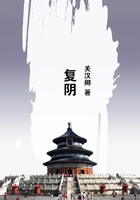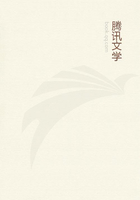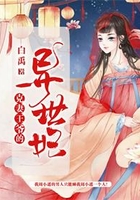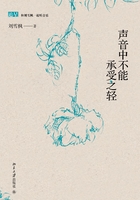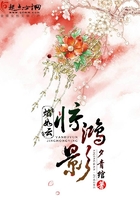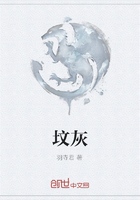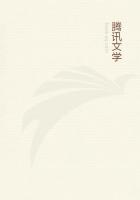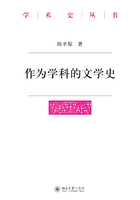A Letter found among the Papers of the late Mortimer Barr YOU ask me if in my experience as one of a pair of twins I ever observed anything unaccountable by the natural laws with which we have acquaintance. As to that you shall judge; perhaps we have not all ac-quaintance with the same natural laws. You may know some that I do not, and what is to me unac-countable may be very clear to you.
You knew my brother John--that is, you knew him when you knew that I was not present; but neither you nor, I believe, any human being could distinguish between him and me if we chose to seem alike. Our parents could not; ours is the only in-stance of which I have any knowledge of so close resemblance as that. I speak of my brother John, but I am not at all sure that his name was not Henry and mine John. We were regularly christened, but after-ward, in the very act of tattooing us with small dis-tinguishing marks, the operator lost his reckoning;and although I bear upon my forearm a small 'H'
and he bore a 'J,' it is by no means certain that the letters ought not to have been transposed. During our boyhood our parents tried to distinguish us more obviously by our clothing and other simple devices, but we would so frequently exchange suits and other-wise circumvent the enemy that they abandoned all such ineffectual attempts, and during all the years that we lived together at home everybody recognized the difficulty of the situation and made the best of it by calling us both 'Jehnry.' I have often won-dered at my father's forbearance in not branding us conspicuously upon our unworthy brows, but as we were tolerably good boys and used our power of embarrassment and annoyance with commendable moderation, we escaped the iron. My father was, in fact, a singularly good-natured man, and I think quietly enjoyed Nature's practical joke.
Soon after we had come to California, and settled at San Jose (where the only good fortune that awaited us was our meeting with so kind a friend as you), the family, as you know, was broken up by the death of both my parents in the same week. My father died insolvent, and the homestead was sacri-ficed to pay his debts. My sisters returned to rela-tives in the East, but owing to your kindness John and I, then twenty-two years of age, obtained em-ployment in San Francisco, in different quarters of the town. Circumstances did not permit us to live together, and we saw each other infrequently, some-times not oftener than once a week. As we had few acquaintances in common, the fact of our extraor-dinary likeness was little known. I come now to the matter of your inquiry.
One day soon after we had come to this city I was walking down Market Street late in the afternoon, when I was accosted by a well-dressed man of mid-dle age, who after greeting me cordially said: 'Ste-vens, I know, of course, that you do not go out much, but I have told my wife about you, and she would be glad to see you at the house. I have a no-tion, too, that my girls are worth knowing. Suppose you come out to-morrow at six and dine with us, en famille; and then if the ladies can't amuse you after-ward I'll stand in with a few games of billiards.'
This was said with so bright a smile and so en-gaging a manner that I had not the heart to refuse, and although I had never seen the man in my life I promptly replied: 'You are very good, sir, and it will give me great pleasure to accept the invitation.
Please present my compliments to Mrs. Margovan and ask her to expect me.'
With a shake of the hand and a pleasant parting word the man passed on. That he had mistaken me for my brother was plain enough. That was an error to which I was accustomed and which it was not my habit to rectify unless the matter seemed important.
But how had I known that this man's name was Margovan? It certainly is not a name that one would apply to a man at random, with a probability that it would be right. In point of fact, the name was as strange to me as the man.
The next morning I hastened to where my brother was employed and met him coming out of the office with a number of bills that he was to collect. I told him how I had 'committed' him and added that if he didn't care to keep the engagement I should be delighted to continue the impersonation.
'That's queer,' he said thoughtfully. 'Margovan is the only man in the office here whom I know well and like. When he came in this morning and we had passed the usual greetings some singular impulse prompted me to say: "Oh, I beg your pardon, Mr.
Margovan, but I neglected to ask your address." Igot the address, but what under the sun I was to do with it, I did not know until now. It's good of you to offer to take the consequence of your impudence, but I'll eat that dinner myself, if you please.'
He ate a number of dinners at the same place--more than were good for him, I may add without disparaging their quality; for he fell in love with Miss Margovan, proposed marriage to her and was heartlessly accepted.
Several weeks after I had been informed of the engagement, but before it had been convenient for me to make the acquaintance of the young woman and her family, I met one day on Kearney Street a handsome but somewhat dissipated-looking man whom something prompted me to follow and watch, which I did without any scruple whatever. He turned up Geary Street and followed it until he came to Union Square. There he looked at his watch, then entered the square. He loitered about the paths for some time, evidently waiting for some one. Presently he was joined by a fashionably dressed and beauti-ful young woman and the two walked away up Stockton Street, I following. I now felt the necessity of extreme caution, for although the girl was a stranger it seemed to me that she would recognize me at a glance. They made several turns from one street to another and finally, after both had taken a hasty look all about--which I narrowly evaded by stepping into a doorway--they entered a house of which I do not care to state the location. Its location was better than its character.

